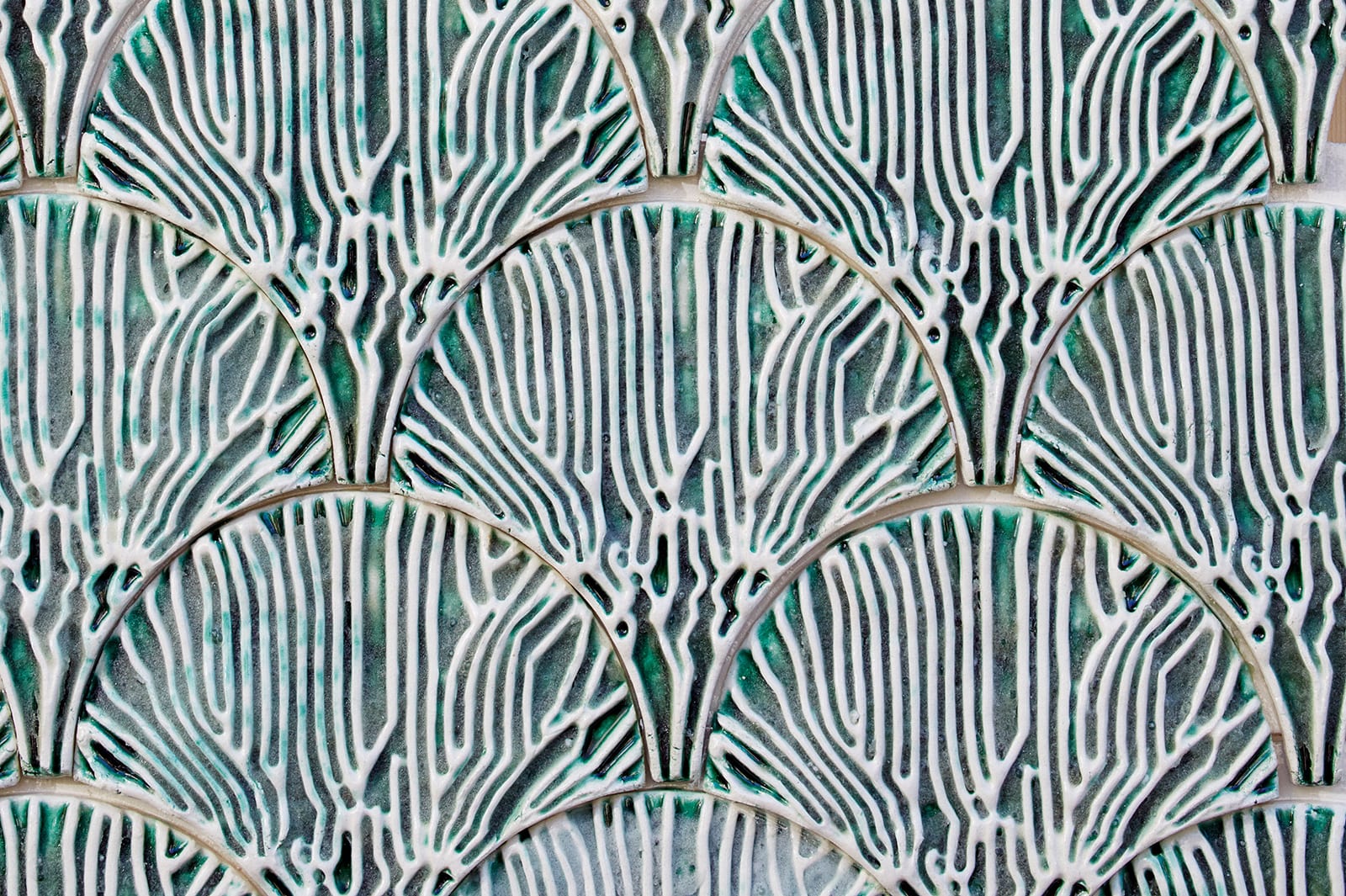The Bio-Integrated Design Lab at the Bartlett School of Architecture has created a modular system of tiles inlaid with algae that can filter toxic chemical dyes and heavy metals out of water. Called Indus, These tiles have been designed by an interdisciplinary team led by Dr Brenda Parker, Professor Marcos Cruz and Shneel Malik.
These pieces mimic the structure of leaves and their ability to distribute water evenly to every part of a plant. The ravines are then filled with micro-algae which are suspended within the “biological scaffold” of a seaweed-derived hydrogel. It trickles through the tile channels and is collected at the bottom. As it flows over the channels, the water is subject to a process called bioremediation, in which microorganisms are used to consume and break down pollutants. Finally, once they are saturated, the algae can be replaced with a fresh batch.
Each Indus tile is made by pressing clay into fan-shaped moulds with a series of “vein-like channels” and can be continually reused and re-filled. Each modular tile unit is attached to the next through half-lap joints, and so can be individually removed without taking apart the entire system. This is crucial, as it allows for easy maintenance and adaptation.
